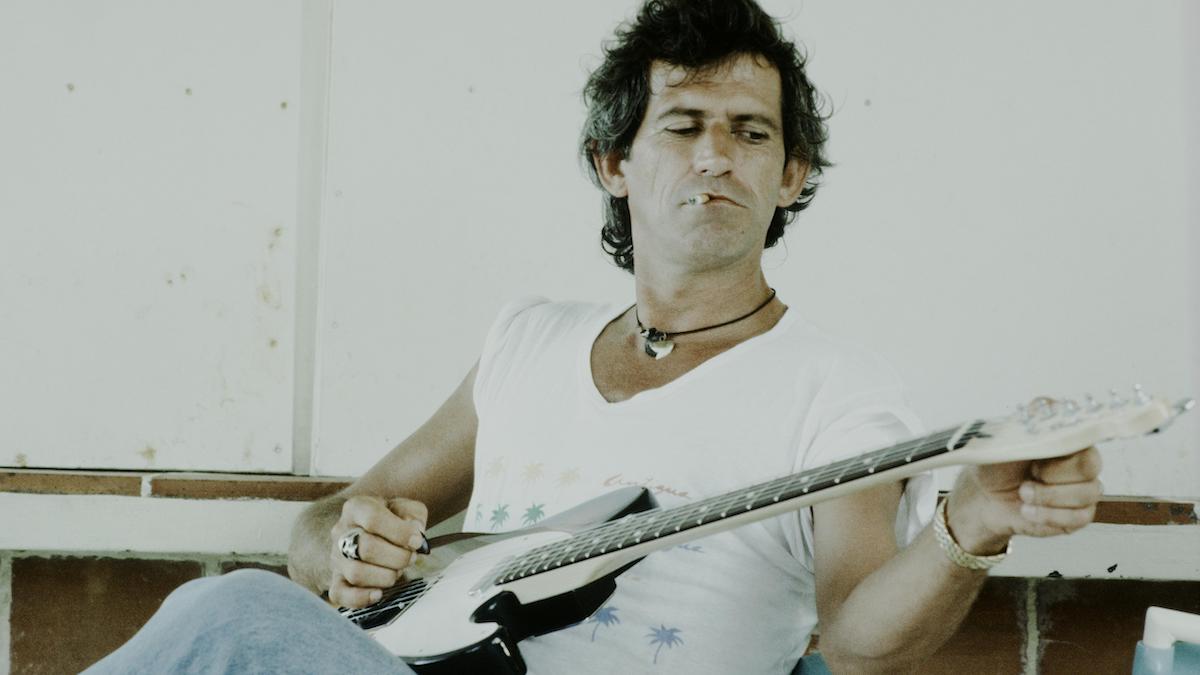
You don't see that many interviews with a Rolling Stone discussing studio technology, so imagine our surprise when we unearthed this gem from 1986 with the legend that is Keith Richards, waxing lyrical on all things studio related. And he even managed to predict how we'd all end up using it…
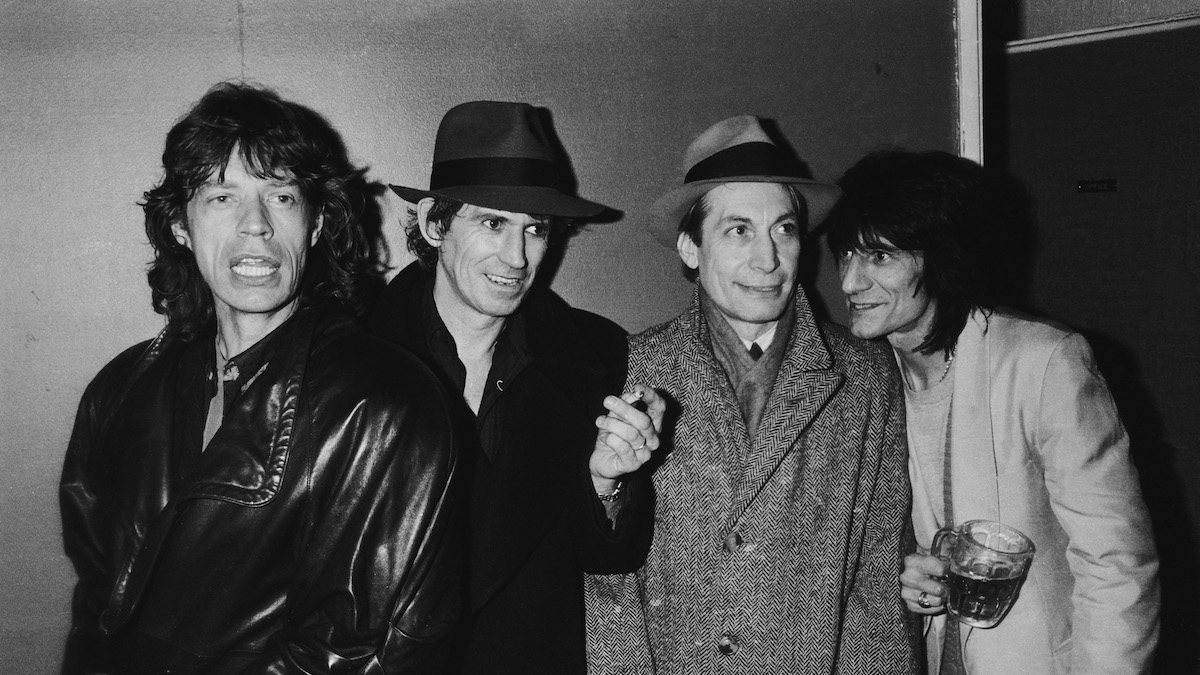
Because of the Rolling Stones' staunch allegiance to the flag that is rock n roll, and using, by their own admission, pretty much the same formula to make music for nigh on 200 years, it is perhaps understandable that we don't give them much credence for being studio whizz kids. But this is wrong.
The Rolling Stones have been bothering recording studios since said facilities pumped music out of one speaker
Think about it. The Rolling Stones have been bothering recording studios since said facilities pumped music out of one speaker. The band has seen it all. They've witnessed that single speaker double in number, then quadruple, then multiply exponentially; they've seen tape go from a single track to unlimited computer tracks; they've watched while computers replace musicians and instruments; and they've seen AI take over the world. They've seen things you would not believe…
Out of all bands that exist, then, The Rolling Stones have been there at every massive leap in studio technology that has got us to the point that we're at today. They are the experts. They are the all-seeing eyes of the recording world. We should hang on their every word.
It's just a shame, then, that they don't speak that many words about recording technology. However, we've dug into the archives and discovered an absolute peach of an interview with the one and only Keith Richards, during which he discussed studio technology, how the band embraced it, or not, and what he thought would happen in the future.
And remember what we just said about hanging on their every word? You'd better believe it, because Richards' predictions were pretty much bang on…
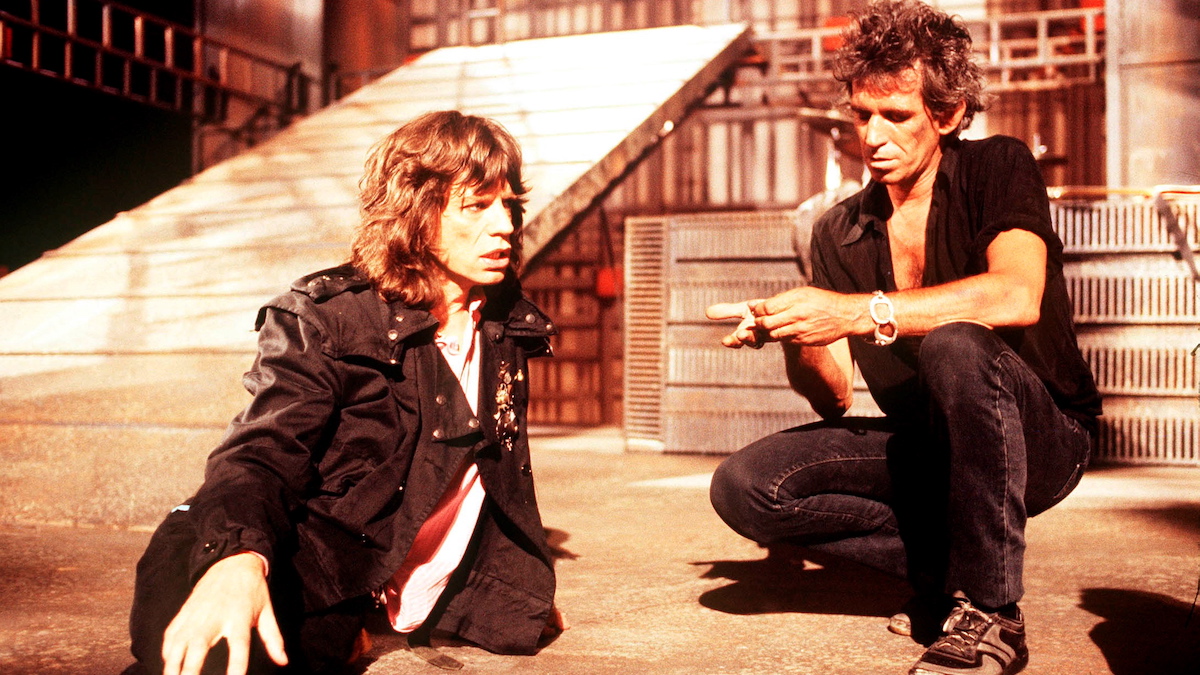
The interview, published in the November 1986 issue of International Musician and Recording World, is notable in many incredible ways, not least because the Rolling Stones already seemed to be regarded by the press as ancient at this point.
Their idea of soundproofing the studio was to stick thousands of egg cartons on the walls
Keith Richards
A mere 25 years into their career, Richards was described at the start of the piece as "looking more battered than a vintage Telecaster. But many a good riff is played on an old guitar...", and later, the article stated: "at 43, Richards is no oil painting". You have to remember that looks and age were ultra important back in the '80s, we guess.
Anyway, what the interview did do was waste no time in asking Richards about technology – a novel approach in comparison to so many before and since that would merely ask him about playing guitar. And on the subject of studio innovation, Richards didn't hold back. As we said above, these guys have seen it all, and he opened with the band's first experiences with recording technology.
"I remember when we started, we used to record on two track," he said. "The first album was all done on two track. Their idea of soundproofing the studio was to stick thousands of egg cartons on the walls and to make it look professional they used to hang the two track on the wall instead of just leaving it on the table. That was supposedly hi-tech!"

The Stones might have used two tracks, but the majority of the records in those early days were put out as mono recordings – as they were meant to be. But then this thing called 'stereo' came along, and Richards was adamant that if it was recorded in mono, that was the way it was meant to be listened to – and there's a good argument for that philosophy to this day.
When stereo' came along, all we did was put mono out of both speakers! There was no way you could make stereo out of our records!
Keith Richards
"I don't want to listen to a 1952 Muddy Waters record in stereo," he said. "It's not what was intended when the record was made. Just because it now has stereo stamped on it, it doesn't make it alright. I mean I remember with the Stones when this new big deal called 'stereo' came along half way through the '60s and all we did was put mono out of both speakers! There was no way you could make stereo out of our records!"
By the time of the interview, of course, music technology was booming. In 1986, digital technology was starting to find its way into the recording studio – although not of the the greatest quality, it has to be said – computers were starting to find their feet, and all sorts of processors were being deployed on every track of every song.
Of this latest technology Richards certainly had an opinion but insisted that "we haven't changed a great deal in the way we actually make records. We're probably making them the same way but for different reasons".
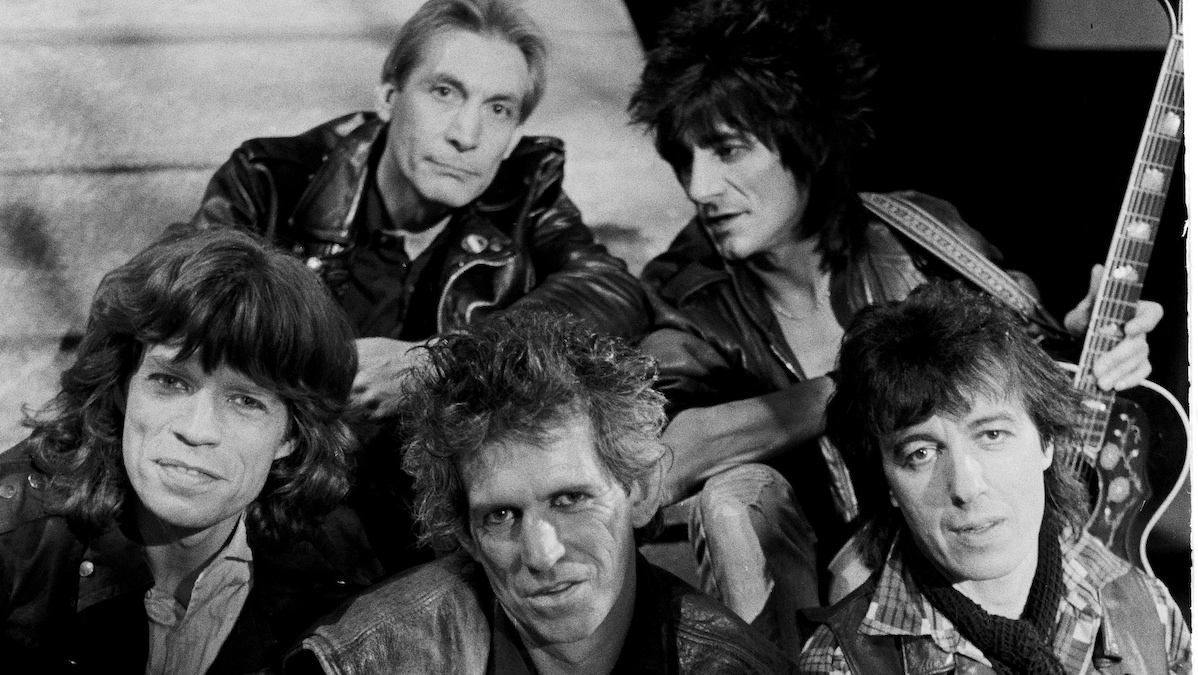
And of the latest (1986) technology, he said: "I'm not knocking anyone who wants to go into a studio and use every bit of technology available. We use quite a bit, obviously, but we like to think that we are using it 'responsibly' and 'intelligently'.
Once the machine has become the record you've missed the whole point
Keith Richards
"It's very easy right now for the technology or gadgetry to overcome a record. We like to use it, but use it sparingly, because once the machine has become the record you've missed the whole point."
We particularly like that last point – a massive one – but it gets better.
"Making records is a race with technology. Technology is supposed to be a tool that widens the spectrum to make more possibilities available, but at the moment it is working negatively. I think people are getting frightened by the number of possibilities and are sticking with formulae they know to be safe."
There's the prediction, and that line could have been said in 2024, let alone 1986, but there's even more…
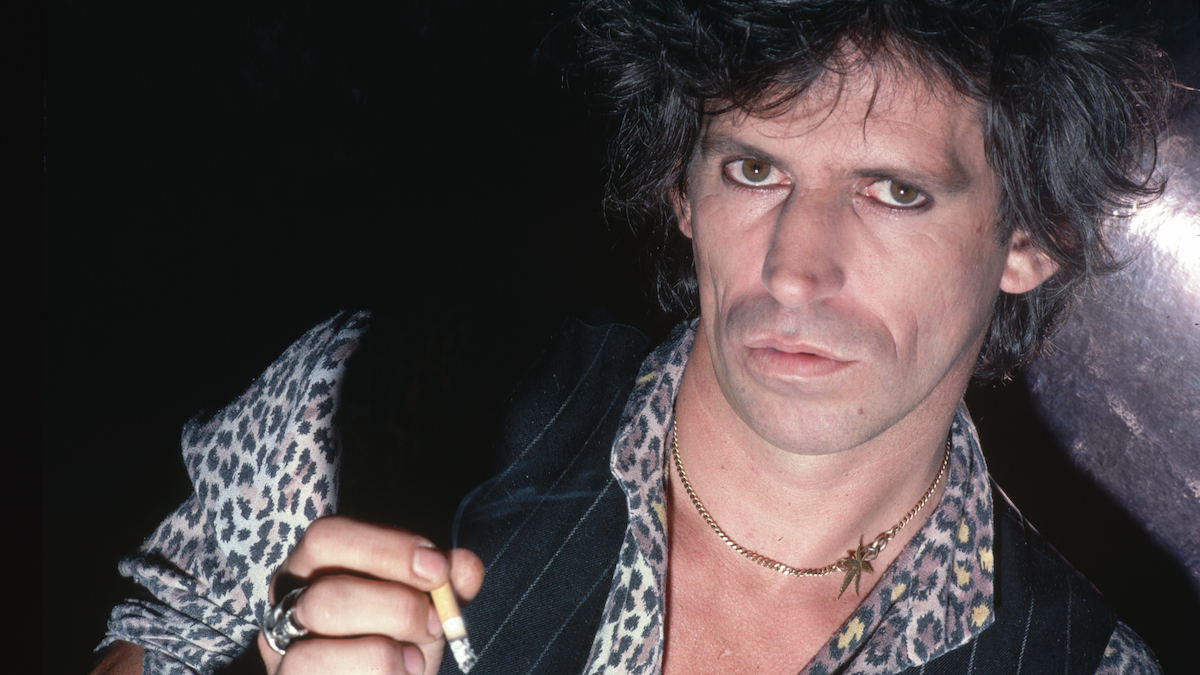
"As more and more possibilities present themselves, the more records sound alike, and I think that's wrong. But music is in a period where there is so much technology – and everyone is playing with it trying to find out what is really useful and what is just a toy.
As more and more possibilities present themselves, the more records sound alike
Keith Richards
"There are now a ludicrous number of toys available in the studio to a musician. And you play with them and discard them when a better one comes along just as a kid does with a toy."
Nearly 40 year on and the Stones are still going strong, of course, and probably with that same studio philosophy. And just in case you don't get the point, Richards rams it home with this last quote, one that might make us all think a little about our studio gear obsessions.
"Technology is racing way in front of making music. We don't need all the toys. That's what the Rolling Stones are really good at... just playing together in the studio and recording."
So there you have it. Keith Richards: Rolling Stone, living legend, guitar god and, who'd have thought it, studio technology guru.







